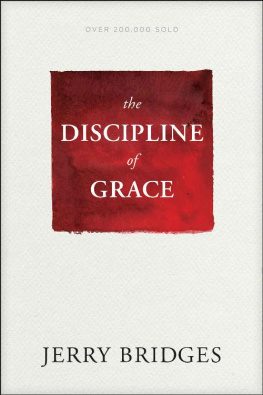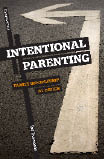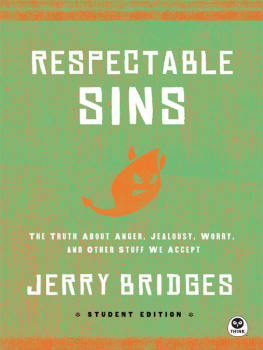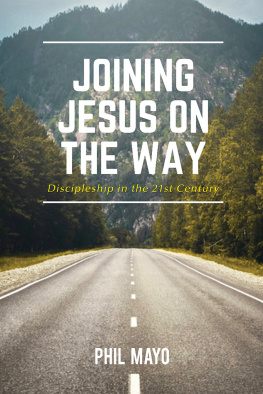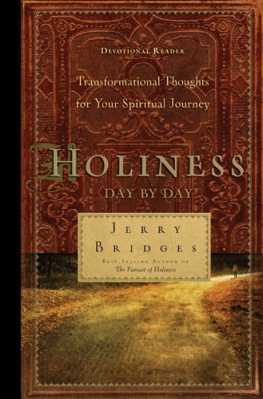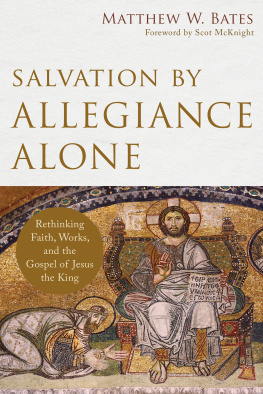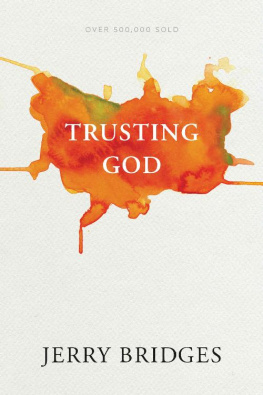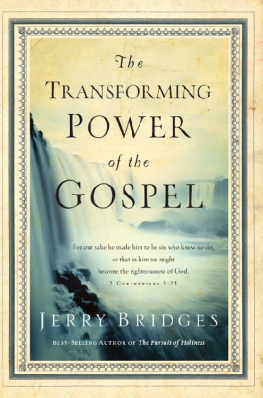A GUIDE FOR INDIVIDUAL OR GROUP STUDY

If you would like to take a few weeks to let the ideas in this book sink from your head to your heart, this study guide is provided to help you. The ideal way to use it is to read two chapters of the book per week, write your thoughts about the questions in a notebook or journal, and then gather with a few friends to talk about what you found most significant. However, if you dont have time to write notes on the questions ahead of time, you can still gather with friends to discuss them. And if you arent able to meet with a group, the Holy Spirit will not leave you as an orphan. He will be powerfully present as you read and write your thoughts.
Youll want a Bible handy to look up passages even though most of the passages are those discussed in the book. In this sense, the book has done a lot of the Bible study for you. Most of your discussion will revolve around these two questions: Do I really understand this? Well enough that I could explain it to some-oneincluding myself? and Do I really believe this? Not just theoretically, but deep down where my beliefs determine my feelings and actions? Dont be afraid to use your feelings and actions as barometers of what your heart believes. Its normal to partly believe the gospel while were on the way to fully believing it, and feelings and actions can help us spot the gaps.
STUDY 1
CHAPTERS 1 AND 2
1. If youre studying with a group, give each person one minute to share how he or she first became acquainted with the gospel. You wont have time to tell your whole testimony, but a brief snapshot will help you learn a lot about each other. (If you find this helpful, consider setting aside another meeting just to share testimonies. Or allow time at the beginning of each meeting for one or two people to tell a five-minute story of their journey to faith.)
2. Church historian Richard Lovelace writes, below the surface of their lives [many Christians] are guilt-ridden and insecure... [and] draw the assurance of their acceptance with God from their sincerity, their past experience of conversion, their recent religious performance or the relative infrequency of their conscious, willful disobedience. Do you think thats true? If so, why do you think its the case?
3. To what extent do you feel insecure about whether God loves or likes you?
4. Whats wrong with a utilitarian view of the gospel that focuses on solutions to personal problems, a more successful life now, and assurance of going to heaven?
5. Read Romans 1:18; 3:10-12; Ephesians 2:3. Why does Bridges say its so important to think about the bad news about ourselves: that were by nature objects of Gods wrath?
6. Read Matthew 18:21-35. How easy is it for you to imagine yourself as the servant who owed two hundred thousand years wages to his master? Please explain why you feel that way.
7. Bridges says the primary need the gospel addresses is our need to be freed from the penalty and habitual practice of sin. On a typical day, how high does that need rate for you when compared to other concerns? Use a scale of 0 (not important to me at all) to 10 (the most important issue on my mind).
8. Read Romans 5:12-14. How did Adams sin affect you?
9. Read Romans 5:15-19. How did Christs death pay for your sin?
10. Federal headship perplexes many Christians. Does it seem fair to you that Adams sin polluted you before you had a chance to do anything good or bad? Does it seem fair that Christs death cleansed you from sin apart from anything youve done? Please explain.
11. Read the commandments and their definitions on pages 25-27. If this is the standard God has set for your life, how well do you measure up? Where are your main weaknesses?
12. Read Isaiah 6:1-7. When you imagine Gods holiness, does it make you want to pull away from Him? Or does it make you want to approach Him fearlessly because Jesus death on the cross has cleansed you? Please explain.
13. In light of what youve studied in , what does Jesus died for my sins mean for you personally?
STUDY 2
CHAPTERS 3 AND 4
1. What pictures or feelings come to mind when you think of obedience?
2. Jesus could say, I delight to do Your will, O my God (Psalm 40:8, NASB). Why is it so important not just to want to do Gods will but to delight in it?
3. In your own words, what was Jesus active obedience? What did it do for you?
4. What was Jesus passive obedience? What did it do for you?
5. A person gets legally united with Christ by placing faithtotal reliancein Him and His work. What difference does legal union with Christ make to your daily life (as opposed to what happens after you die)?
6. When God looks at you, He says, This is my son [or daughter], whom I love; I am well pleased with him [or her] not because of anything youve done, but because of what Christ did. What difference should that make to your daily life?
7. Bridges says, Gods justice must be satisfied; otherwise His moral government would be undermined (page 43). Why would His moral government be undermined if He just forgave us without insisting that someone pay for our crimes?
8. Why does God treat your sins as seriously as He does rape and murder? Why doesnt He think you deserve more mercy than rapists and murderers?
9. To what extent (if at all) do you live in fear that God will punish youor is punishing youfor your sins? What prompts you to fear or not fear this?
10. How will knowing that Christ has satisfied Gods justice on your behalf affect the way you deal with:
an experience of suffering?
yourself when you sin?
an experience when someone else sins against you?
STUDY 3
CHAPTERS 5 AND 6
1. What pictures or feelings come to your mind when you think of Gods wrath?
2. Read Matthew 5:22; Mark 9:47-48; Luke 12:4-7. How do you respond to this talk of hell and fearing God (and in the same breath Jesus statement that you are worth more to God than the sparrows)?
3. How is Gods wrath different from the wrath we may see humans display?
4. On pages 50-51, Bridges explains that God is wrathful against sin because sin is essentially an act of treason against the legitimate Ruler of the universe and His moral authority. Why is it inaccurate to see this wrathful God as an egotistical dictator?
5. Jesus exhausted Gods wrath. The cup of wrath is empty. What are the implications of this fact for us?
6. What goes through your mind when you think about the fact that you were the cause of our Saviors unimaginable suffering as He took on Gods wrath?
7. Why is it important for your current daily life to know that God has no more wrath when He looks at you?
8. Read Leviticus 16:20-22. How did Jesus do in reality what the live goat did symbolically in the ceremony on the Day of Atonement?
9. Bridges says (page 60), Only to the extent we believe God has indeed put our sins behind His back will we be motivated and enabled to effectively deal with those sins in our daily lives. Why is this the case?
10. Which of the images of forgiveness discussed in (God putting your sins behind His back, remembering them no more, hurling them into the depths of the sea, and so on) speaks most deeply to you?
11. Why do you suppose its so hard for many of us to shed our guilt feelings and believe that God has forgiven us?
12. Bridges counsels us to sincerely and humbly acknowledge our sins daily, and also to gratefully embrace Gods forgiveness daily. How do you typically deal with sin in your life?
STUDY 4
CHAPTERS 7 AND 8


